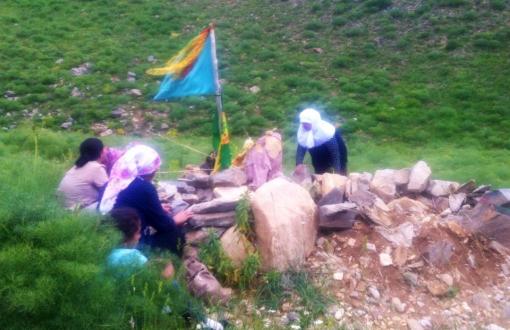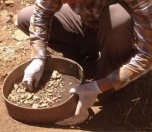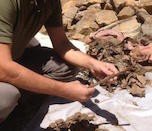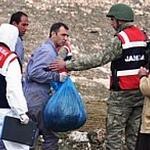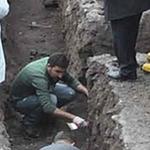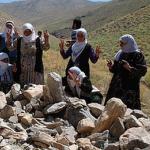A discovery decision was issued in the case filed by relatives of guerrillas killed and placed in a mass grave 16 years ago.
Attorney Turan Ece stated that the court reached a discovery decision set for August 21 after the arrival of the anticipated Forensic Medicine document:
“We will go to the mass grave at Badılgali highland along with a medical specialist, a specialist photographer and a Forensic Medicine specialist on August 21. The court accepted our request for a discovery conducted by The Society of Forensic Medicine Specialists Chair Professor Ümit Biçer, M.D. They issued a safety warrant to law enforcement for the day of the discovery.”
Forensic Medicine
Families of the deceased, their attorneys and Van Bar Chair Murat Timur attended the third hearing in Çatak Peace Civil Court yesterday.
The court obtained the document prepared by the Forensic Medicine Institute on the costs of discovery. Attorney Ece declared the discovery cost to be approximately 22,000 TL and requested legal aid saying the families could not afford this sum.
“Since the government killed my daughter and did not deliver her funeral, this cost must belong to the government,” stated plaintiff Melek Avcı.
Attorney Ece added:
“This case is the demand for legal remedies for the plaintiffs who have yet to receive the funerals of their children. In the process of their demand, they applied to the Çatak Chief Public Prosecution in 2011 for the delivery of the funerals. However, the families were not given the bones although the administration committed a crime. We exhausted the means of municipal law and carried the case to the European Court of Human Rights (ECHR). We applied back to the means of municipal law following the ECHR ruling. The plaintiffs are not responsible for the case being transferred to you; the request for legal aid must be accepted since the families are poor.”
What had happened?
22 guerrillas, according to official sources, and 27 according to Kurdistan Workers’ Party (PKK) lost their lives in the armed conflict on October 12, 1998 between Turkish Armed Forces (TSK) and the PKK in Van province Çatak district’s Kayaboğazı village Görentaş highland. The families of the guerrillas’ did not receive their funerals.
The families, upon finding out in July 2011’de about a mass grave in Çatak, applied to the Human Rights Association (İHD) Van Branch thinking their own children could be there. The Arduç family went to İHD Van branch on October 4, 2011, and the other families on August 11, 2011.
İHD attorneys applied to the Çatak Chief Public Prosecution and requested, "the mass grave to be opened with the help of the public, a DNA test to be conducted, and the bones thought to belong to their relatives to be delivered to them.”
Çatak Chief Public Prosecution ruled “lack of legal grounds for prosecution” on August 24, 2011, stating the requests to be “within civil court jurisdiction.” Erciş High Criminal Court affirmed the decision.
The incident was carried to the ECHR. The court evaluated the families’ application and inquired in their declaration dated March 20, 2013 whether the case closed due to “lack of legal grounds for prosecution” had been carried to civil courts.
Attorney Ece applied to the Çatak Peace Court on April 26, 2013 following the ECHR’s statement and launched a case. The first hearing took place on May 14, the second on June 25, and the third yesterday. (AS/PU)




